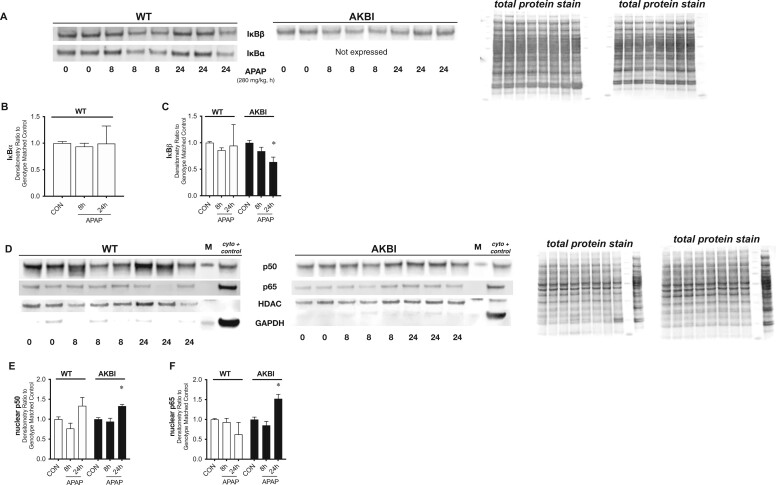Figure 5.
Toxic acetaminophen (APAP) exposure induces sustained hepatic nuclear factor kappa B (NFκB) signaling in AKBI mice. Wild type (WT) and AKBI (IkappaB beta [IκBβ] knock-in mice) were exposed to APAP (280 mg/kg, IP) for 0, 8, or 24 h. A, Representative Western blot of NFκΒ inhibitory proteins IkappaB alpha (IκBα) and IκBβ in hepatic lysates, with total protein shown as loading control. Densitometric analysis of B, IκBα and C, IκBβ in hepatic lysates after APAP exposure (8 and 24 h; 280 mg/kg, IP). D, Representative Western blot of NFκΒ subunits p50 and p65 in hepatic nuclear extracts, with total protein shown as loading control. Densitometric analysis of E, p50 and F, p65. White columns represent WT mice and black columns represent AKBI mice (n = 5–11). Data are expressed as mean ± SEM; *p < .05 versus genotype-matched control and †p < .05 versus time-matched exposure.

